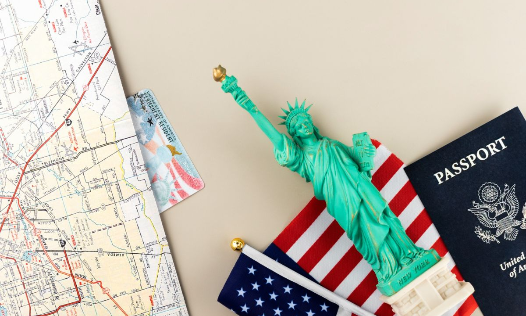Payment is being processed. Please do not refresh or close this page until your payment is complete.
 Book an Appointment
Book an Appointment

The US has updated its immigration policy to include social media screening for visa applicants. Posts deemed anti-Semitic or supportive of terrorist groups may result in denial of student visas or green cards. This new rule is already in effect and applies to both new applicants and current residents.
In a significant visa policy update, US immigration authorities have announced that social media activity will now be examined as part of the visa and green card application process. Posts considered anti-Semitic could lead to denial of entry or removal of legal residency.
This rule is already in effect and applies to all new applicants for student visas, green cards, and potentially other visa categories.
• Student Visas (F-1, M-1, etc.)
• Permanent Resident Status (“Green Cards”)
What Is Considered “Anti-Semitic” Content?
The Department of Homeland Security (DHS) clarified that social media posts supporting organizations labeled as terrorist groups by the United States, including Hamas, Hezbollah, and Yemen’s Houthi movement, could be used to deny entry.
According to DHS Secretary Kristi Noem, “Anyone who thinks they can come to America and hide behind the First Amendment to advocate for anti-Semitic violence and terrorism—think again. You are not welcome here.”
Impact on Visa and Green Card Applicants
The policy gives US Citizenship and Immigration Services (USCIS) the power to treat any online content seen as endorsing or promoting anti-Semitic terrorism as a negative factor in visa decisions.
It’s important to note:
• Green card holders could be subject to review and deportation.
• Student visa applicants might face denial for past or present social media activity.
• Associating with protests could lead to visa scrutiny, even if one has not made anti-Semitic statements directly.
Recent Visa Revocations and Deportations
Secretary of State Marco Rubio reported that more than 300 individuals have had their visas revoked in recent weeks. He emphasized that non-US citizens do not share the same constitutional rights as American citizens and that visa decisions are at the discretion of immigration authorities, not judges.
Universities Under Scrutiny
In parallel with these immigration crackdowns, the US government has also withdrawn millions of dollars in federal funding from top universities. The move came after officials accused them of failing to combat anti-Semitism during pro-Palestinian protests over the Gaza conflict.
What Visa Applicants Should Know Before Applying
If you’re applying for a US visa or permanent residency, here are key things to keep in mind:
1. Audit Your Social Media
• Review past posts, shares, likes, and affiliations.
• Delete or clarify any content that could be misinterpreted.
2. Avoid Association with Designated Groups
• Do not promote or support any group listed as a terrorist organization by the US.
• Even unintentional interactions can raise red flags.
3. Know Your Rights Are Limited
• Non-citizens are not protected by the First Amendment in the same way as US citizens.
• Immigration officials have broad authority over visa approvals and revocations.
4. Stay Updated on USCIS Policy Changes
• USCIS rules can change quickly and without much public notice.
• Always refer to the official USCIS policy page before applying.
5. Consult an Immigration Attorney
• Especially if you’ve participated in political protests or have controversial online activity.
Final Thoughts
This update marks a new phase in how the US evaluates foreign nationals. With social media now under review, visa applicants must be more cautious than ever. Even lawful permanent residents can be at risk if their digital footprint includes controversial or politically sensitive content.
The move aligns with the Trump administration’s broader crackdown on immigration, civil unrest, and university activism. As the US tightens its immigration filters, global travelers and students must stay informed and vigilant.
Source: https://travelobiz.com/us-visa-rule-update-social-media-activity-denial/